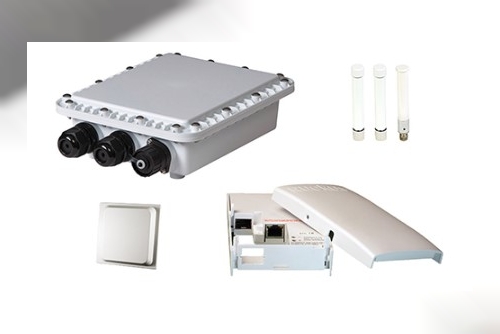Metalica Forging Inc, a renowned leader in Flanges Manufacturer in India, offers a wide range of industrial pipe flanges to meet various needs, from 12 inches to 48 inches in diameter. These flanges are essential for seamlessly connecting pipes to other components, such as tees, elbows, reducers, and valves, ensuring a smooth integration within piping systems.
As one of the largest Flange Suppliers in India, we have earned a reputation for its unwavering commitment to meeting the global demands of its clients, who are spread across five continents and nearly 80 countries. This remarkable achievement is a testament to the exceptional quality and durability of the company's products.
We are most trusted name in the Indian flanges market, known for producing ASTM A105 flanges that can withstand high-pressure and high-temperature conditions. As a prominent supplier of JIS Flanges, the company is continuously expanding its service offerings to cater to the changing requirements of its diverse clientele.
Flanges are crucial components in many industries, especially in piping systems. Whether in oil and gas, chemical, power plants, or water treatment facilities, the proper design of flanges can significantly affect the overall performance, reliability, and safety of the system. This blog delves into the secrets of effective flange design, as shared by industry experts, and provides invaluable tips to ensure optimal performance and longevity of flanges in various applications.
Understanding the Basics of Flange DesignA flange is a mechanical part used to connect pipes, valves, pumps, and other equipment into a complete piping system. It is a circular plate with holes for bolts, which allows for a strong connection. Flanges serve both as a structural link and, in many cases, a sealing surface for gaskets to stop leaks.
Key Flange TypesWeld Neck Flange:This type of product is made for applications that require high pressure. The flange is attached to the pipe by welding the edges together, creating a continuous and smooth connection that spreads the stress across the pipe's wall and the flange's neck. It is well-suited for situations with significant changes in temperature.
Slip-on flanges are generally used for low-pressure, low-temperature applications and are simpler to install than weld neck flanges. They are positioned over the pipe and welded on the inside and outside to increase their strength.
Blind flanges are used to seal off pipelines or valves, which is crucial for testing and maintenance. These flanges have a straightforward design and can withstand high pressure.
Socket weld flanges are well-suited for small pipes and high-pressure applications, as they offer exceptional resistance to fatigue.
Lap joint flanges paired with stub-end fittings are well-suited for systems that need to be disassembled regularly for inspection or cleaning purposes.
Critical Design ConsiderationsWhen designing flanges, various elements must be considered, such as the material type, pressure classification, and surrounding conditions. A properly engineered flange should be capable of enduring the mechanical tensions caused by internal pressure and external forces, while simultaneously preserving a leak-free seal. Here are some expert recommendations to achieve an optimal flange design.
Flange Design Tips from Industry Experts1. Material Selection: Compatibility is KeySelecting the right material is crucial when designing flanges. Experts stress the need to pick materials that can withstand the substances flowing through the pipes and the surrounding environment. For example, stainless steel is highly resistant to corrosion, making it a common choice for chemical and water treatment facilities. Conversely, carbon steel flanges are more appropriate for high-temperature settings, such as power plants.
In harsh environments like offshore oil drilling, specialized metal alloys such as Inconel or Monel may be necessary to withstand the intense corrosive effects of seawater. When selecting materials, it's important to consider the temperature and pressure requirements to prevent flange failures during operation.
2. Stress Analysis: Prevent Overstressing the FlangeAnalyzing stress is essential to prevent failures, particularly in high-pressure or high-temperature settings. Specialists suggest performing a finite element analysis (FEA) to verify that the flange can withstand the stresses imposed by the system. Excessive stress can result in flange distortion, bolt loosening, and potentially, leakage or catastrophic failure.
3. Flange Face Finish: Achieving a Tight SealThe surface of a flange, called the flange face, is crucial for stopping leaks. The texture of the flange face should be carefully selected to work well with the gasket material and the specific use. Experts advise using a smoother finish for soft gaskets like rubber or PTFE to get a tight seal, while rougher textures are better with metal gaskets that need more friction to make an effective seal.
The most common finishes for flange faces are:Raised Face: A higher surface area creates a better seal. This is often used in high-pressure settings.Flat Face: The flange must be in complete contact with the gasket and the surface it is mating with.Ring-Type Joint (RTJ): RTJ flanges are designed for use in systems that operate under high pressure and high temperature conditions. These flanges have a groove cut into their face to hold a metal ring gasket in place.4. Gasket Selection: Proper Sealing is EssentialThe type of gasket material and its design are crucial for creating a leak-free seal. The gasket needs to be suitable for the flange material, the substance being transported, and the operating environment, including temperature and pressure.
Metallic gaskets are suitable for high-pressure and high-temperature applications.Non-metallic gaskets are used in lower-pressure systems and typically include materials like rubber, Teflon, or compressed fiber.Composite gaskets combine metallic and non-metallic materials, providing a balance between flexibility and strength.5. Bolt Torque and Tightening Patterns: Ensuring Uniform PressureBolts are essential for keeping the flange assembly intact, and applying the right amount of torque is crucial to prevent uneven pressure, which can cause the gasket to fail. Experts advise using a controlled tightening technique, like a torque wrench, to apply the appropriate amount of force evenly across all the bolts.
Fasteners are essential for securely joining the flanged components, and the appropriate application of twisting force is crucial to prevent uneven pressure, which can result in gasket malfunction. Specialists suggest employing a regulated tightening approach, like a torque wrench, to apply the correct amount of force uniformly across all fasteners.
6. Temperature and Pressure Ratings: Don’t Exceed the LimitsEach flange has particular pressure and temperature limits, often called the "pressure class." These limits define the highest allowed working pressure at a given temperature. Going beyond these limits may result in severe failures.
Experts stress the need to comprehend the system's working conditions and ensure the flange's pressure rating aligns with the maximum anticipated pressure and temperature. For instance, in steam systems, temperature variations can lead to substantial expansion and contraction, necessitating flanges with higher ratings to handle the stress.
7. Corrosion Protection: Guarding Against Environmental FactorsDamage to flanges is often caused by corrosion, particularly in challenging settings like offshore rigs or chemical facilities. Experts advise applying protective coatings, like galvanization or epoxy, to prevent corrosion. In certain situations, using a corrosion-resistant alloy may be necessary to ensure long-lasting performance.
Most Trusted Manufacturer leading flanges in several Indian cities:MS Flanges Manufacturer In Rajkot
MS Flanges Manufacturer In Ahmedabad
MS Flange Manufacturer In Surat
MS Flange Manufacturer In Pune
MS Flange Manufacturer in Bhavnagar
For More Details
Website: metalicaforginginc.com










 Top Reasons to Learn Digital Marketing in Faridabad This Year
Top Reasons to Learn Digital Marketing in Faridabad This Year

